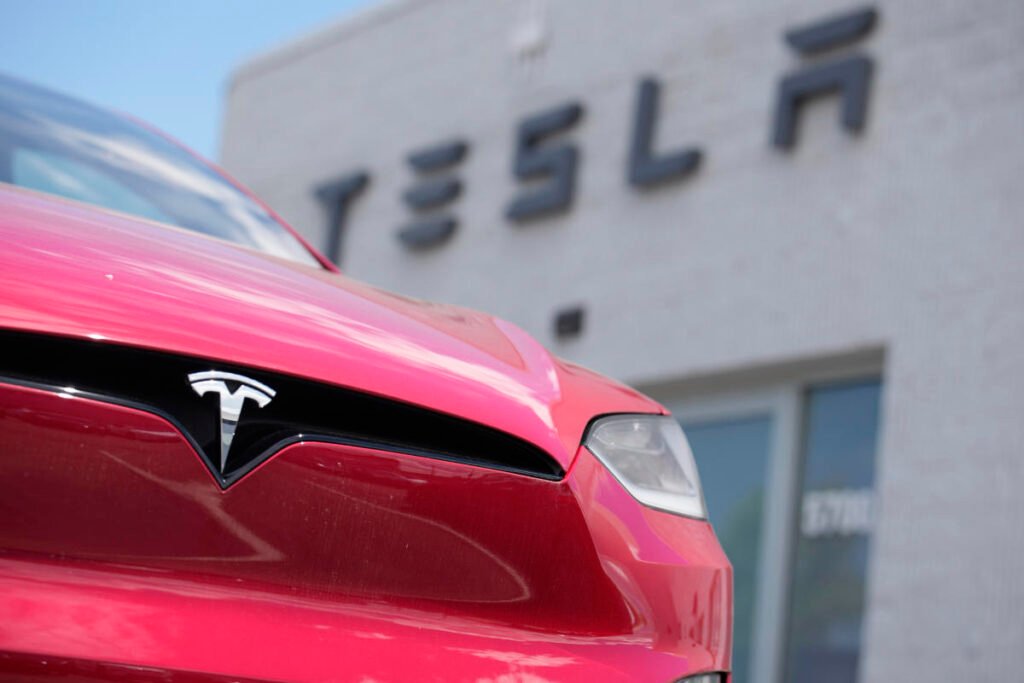EV sales continue to grow in the U.S., albeit at a slower-than-expected pace, causing Tesla’s market share to fall off key levels as rivals’ improved EVs hit showrooms.
Tesla’s share of U.S. EV sales fell below 50% for the first time, to 49.7%, according to Cox Automotive’s latest EV sales report. This comes as Cox estimates that overall EV sales have grown to about 8% of the total market, up from 7.2% in the second quarter of last year, in what the firm called a “record-breaking” quarter.
“Though Tesla’s sales are declining and its EV sales share has fallen below 50% for the first time, the overall competitive environment for electric vehicles is heating up,” Stephanie Valdes Streety, director of industry insights at Cox Automotive, said in the report.
Looking at Cox data from 2019, Tesla’s market share has been steadily declining since hitting a high of 82.5% in Q3 2019. The steepest declines have occurred in more recent quarters, where Tesla’s market share was 77.5% in Q4 2021. In less than two years (Q2 2023), it has fallen to 50.2% as EVs from new brands and legacy automakers enter the market.
Tesla’s market share decline coincides with a decline in deliveries in the second quarter. Tesla announced that it delivered 443,956 vehicles in the second quarter, up from 386,810 delivered worldwide in the first quarter but down from about 466,140 delivered a year ago.
Tesla currently has 49.7% of the market, but Cox found that Ford’s Mustang Mach-E, Ford Lightning EV pickup and E-Transit cargo van have nudged it into second place with a 7.2% share. Kia, sister brand Hyundai and BMW round out the top five.
Taking a closer look at the fastest-growing brands in the second quarter, GM’s Cadillac took the top spot with EV sales growing by more than 440%, led by the LYRIQ mid-size electric SUV. Although Cadillac’s LYRIQ’s launch was delayed as GM ironed out flaws in its Ultium EV platform, sales momentum has been building since the start of the year. Toyota saw sales of its only EV, the bZ4X, grow to more than 7,000 units in the second quarter (up from 2,000 in the same period last year), but reportedly at heavy discounts.
“This increased competition will continue to put pressure on prices and drive EV adoption over time,” said Cox’s Valdes Streety. “Automakers that offer the right product at the right price, delivering a great consumer experience, will be the ones to lead EV adoption.”
Affordability is likely driving sales at Ford, Kia and Hyundai, with Kia’s mid-priced EV6 crossover, EV9 large SUV and Niro subcompact penetrating broader segments of the market, along with Hyundai’s similarly priced Ioniq 5 crossover and Ioniq 6 sedan.
Valdes Streeti noted that premium brands such as BMW and Cadillac are likely to excel in the customer service department, and that higher-income buyers are prioritizing the dealer experience along with product mix in their purchasing decisions.BMW electric vehicles, including the BMW iX SUV, i4 coupe and i7 luxury full-size sedan, are boosting sales.
In contrast, BMW’s rival Mercedes, which has been focusing on luxury and expensive EVs, saw its EV sales fall in the second quarter (down 22.3%) as consumers struggled to embrace its higher-priced EVs. Mercedes is now pivoting to gasoline-powered vehicles and has no plans to go all-electric before 2030.
Pras Subramanian is a Yahoo Finance reporter covering the auto industry. twitter and Instagram.
For the latest stock market news and in-depth analysis, including stock-moving events, click here.
Read the latest financial and business news from Yahoo Finance

